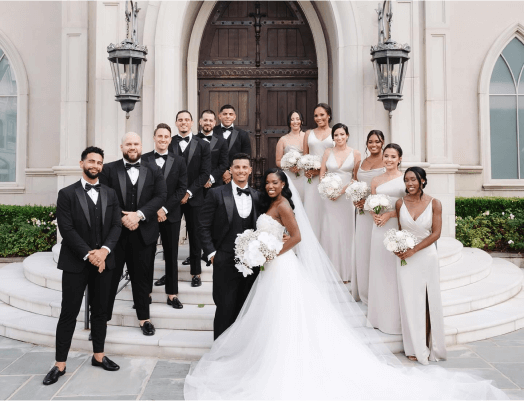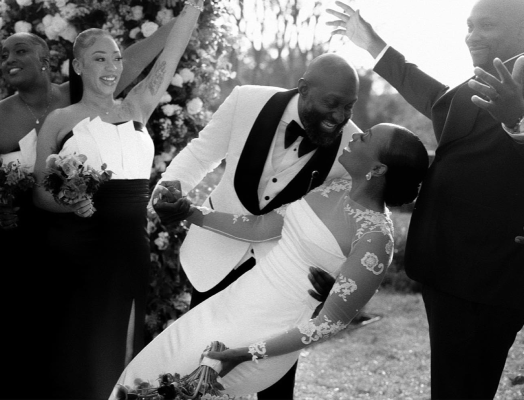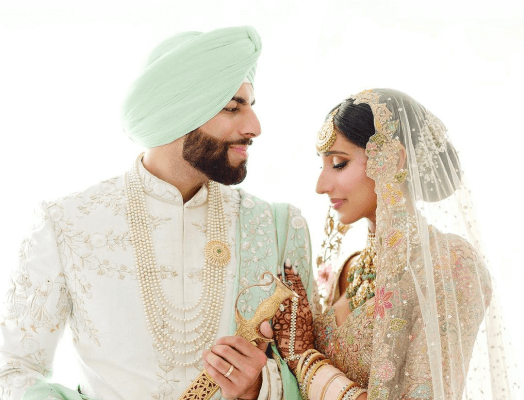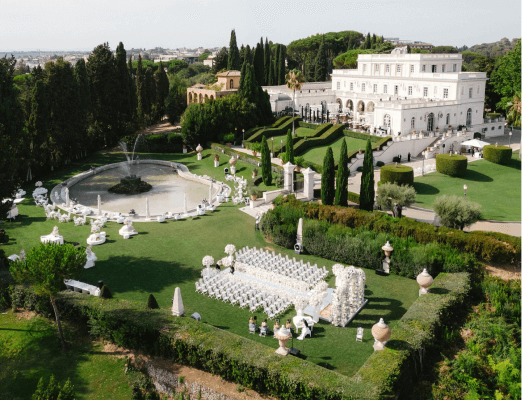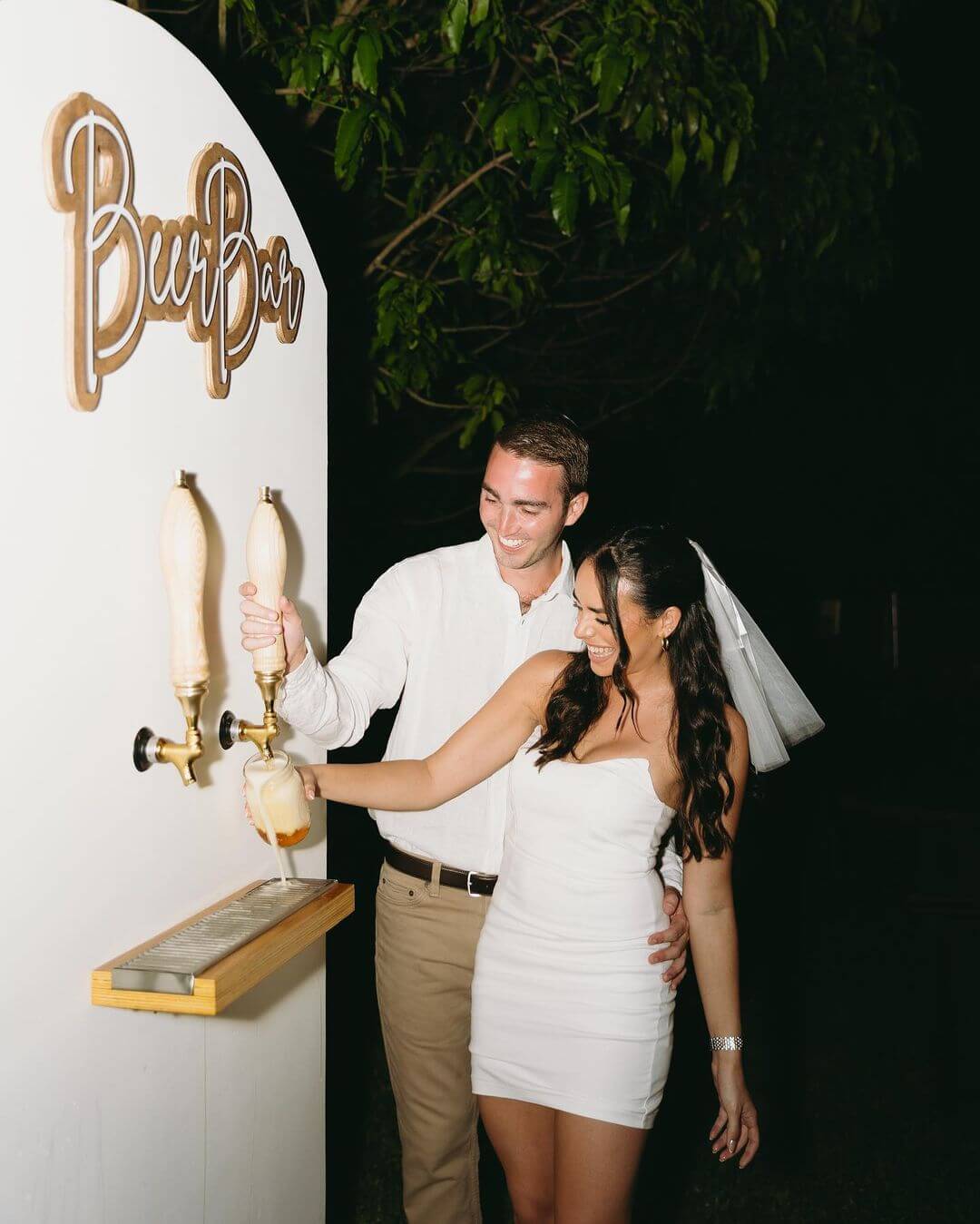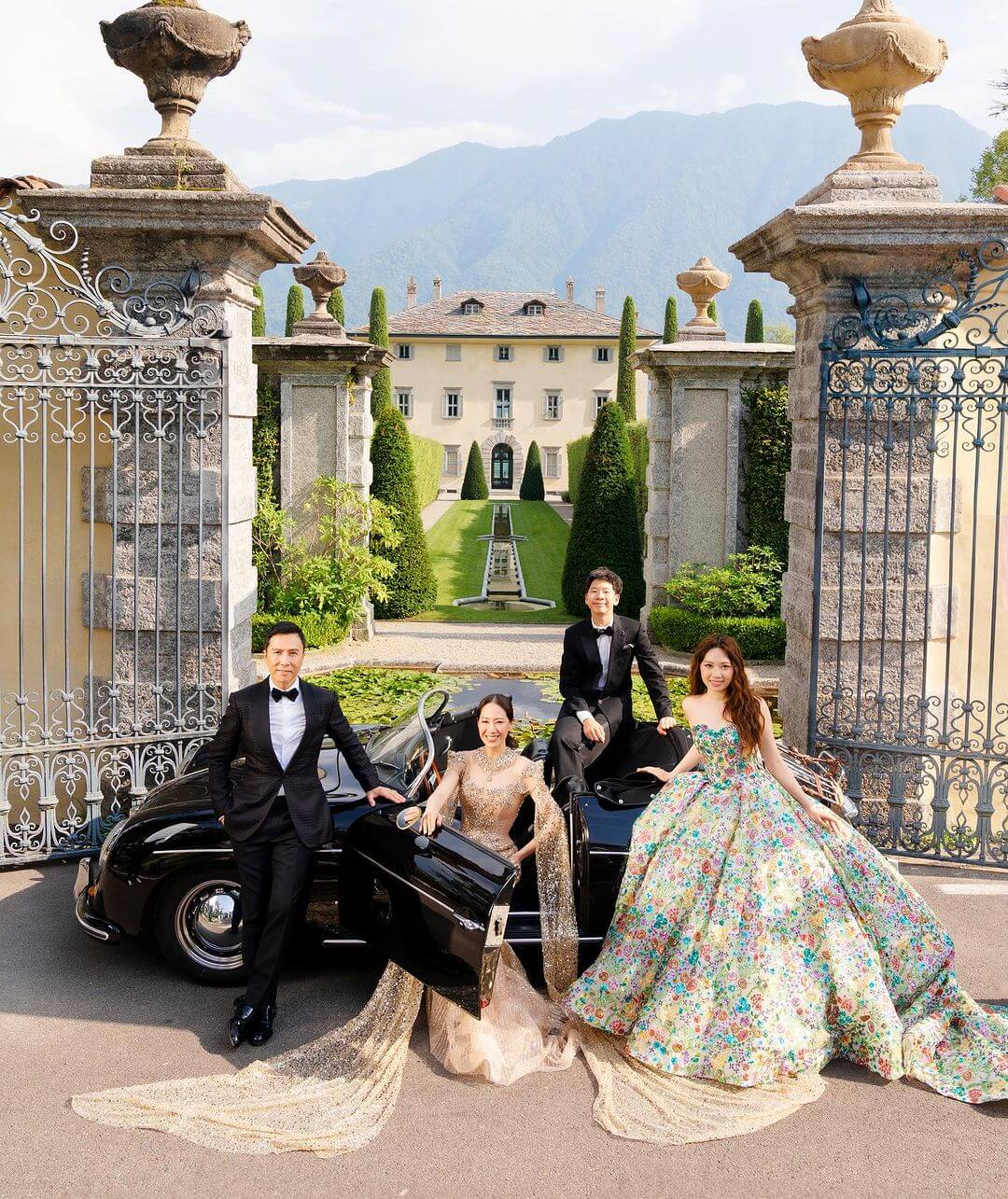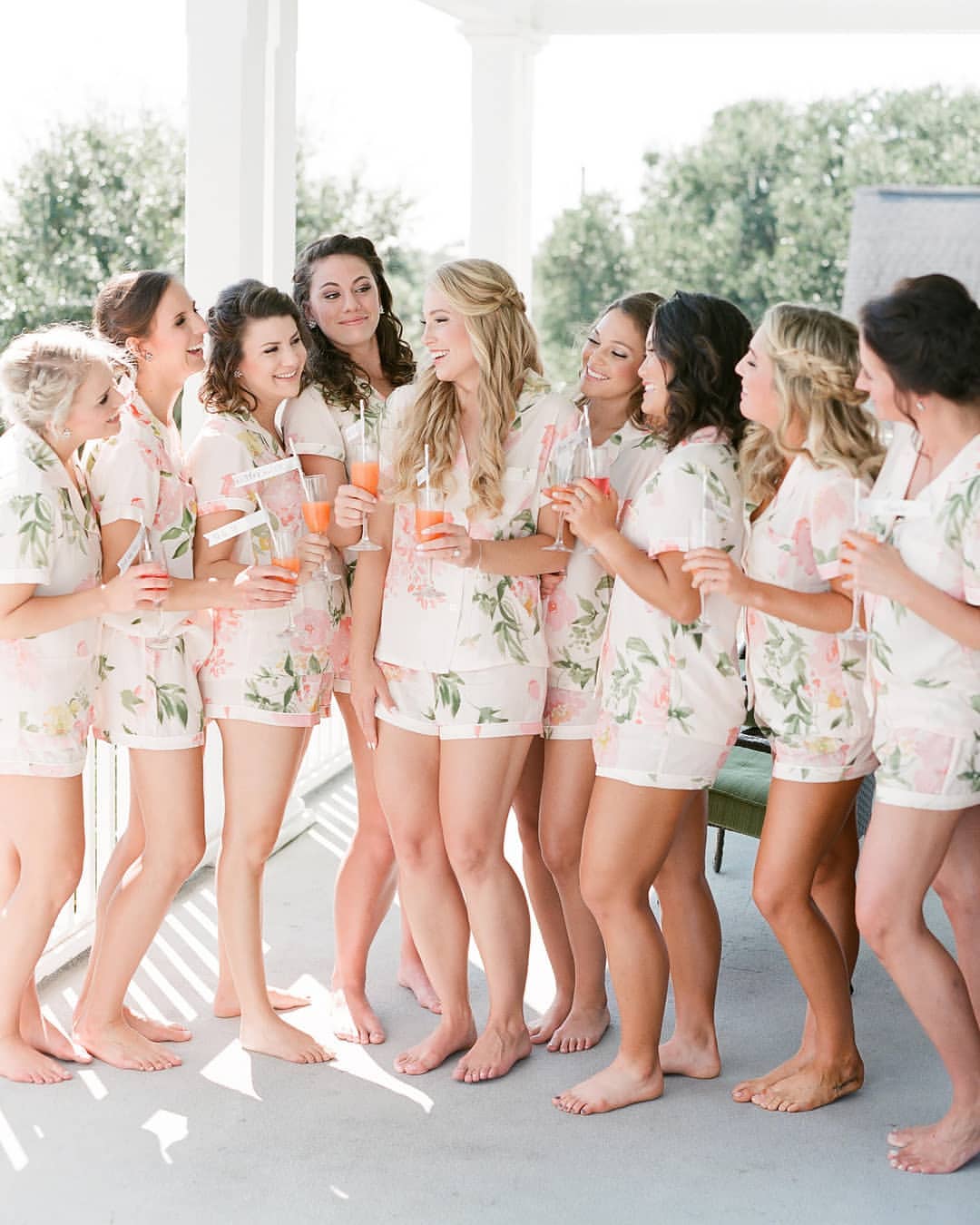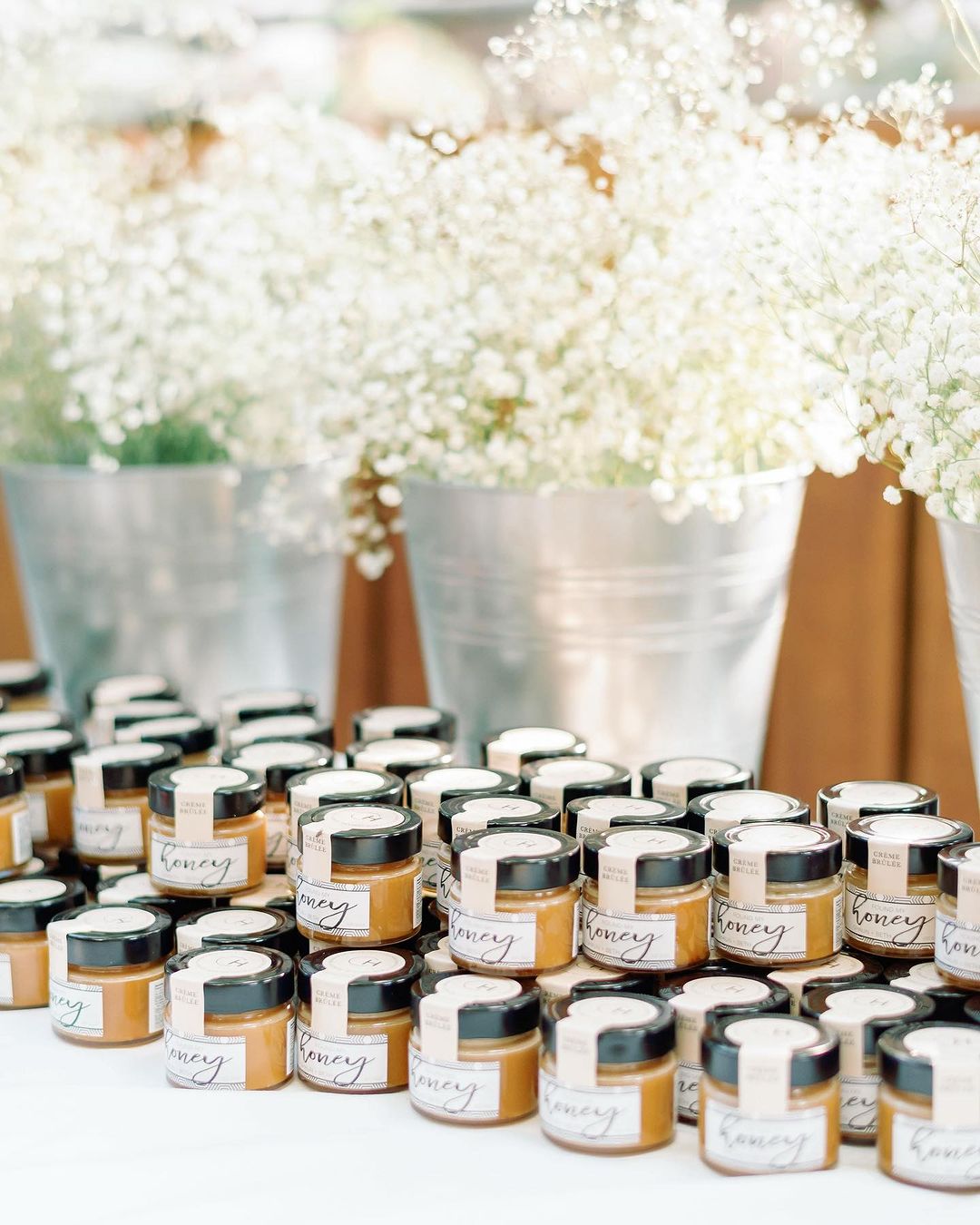Expert Tips on Finding a Wedding Officiant
- Author: Natali Grace Levine
- Reading time: 8 min 17 sec
- Publication date: 01/21/2024
- Updated: 02/02/2026
Selecting the right person to officiate your wedding is akin to finding the perfect captain for your marital voyage. This individual doesn't just ensure the smooth sailing of your ceremony; they also bring a touch of personality that elevates your big day, making it truly unforgettable. Amidst the whirlwind of wedding planning, the task of finding an officiant might appear daunting but fear not. We're here to assist you in navigating this vital choice. So, let's embark on an exploration of the world of wedding officiants, unlocking the keys to a flawless selection.
Find Your Perfect Wedding Vendors
Who is a Wedding Officiant
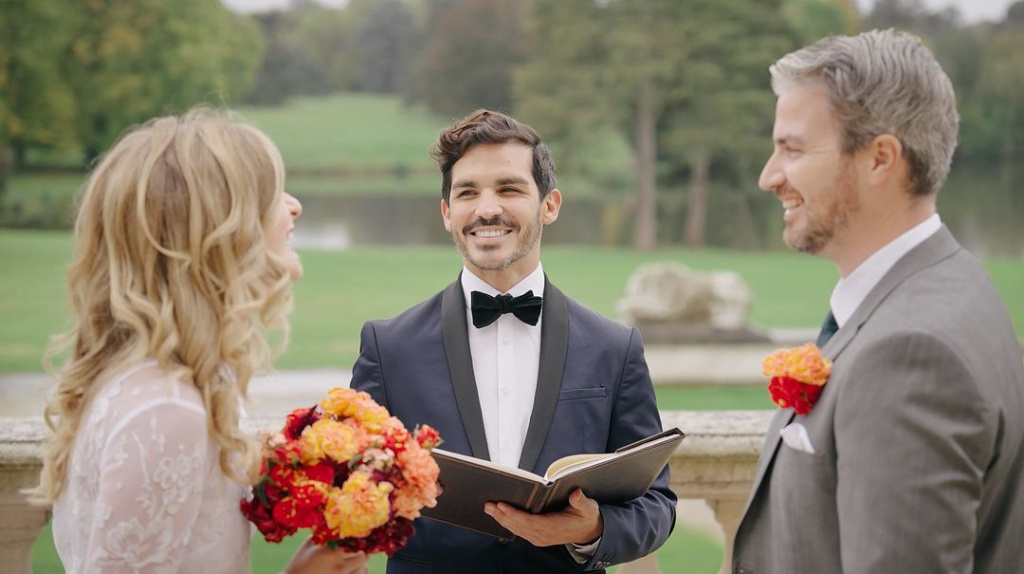
Today's wedding officiants are the modern-day successors of a deep-rooted history of ceremonial leadership. Their roots can be traced back to ancient civilizations, where spiritual or religious figures were central to marriage ceremonies. These ceremonies were more than just personal unions; they were integral components of the social and religious framework of communities. Thus, figures like priests, shamans, or tribal elders often led these rites, seeking divine favor and communal endorsement for the union.
Over time, as cultures evolved, so did the officiant's role. This evolution was marked particularly by the way religious institutions formalized the officiant's role. For example, in Christian communities, priests or ministers typically took up this role, whereas, in Jewish traditions, it was the rabbis. These figures did more than just formalize the union; they also provided pre-marital guidance, infusing the ceremony with deeper spiritual resonance.
What Is the Role of a Wedding Officiant
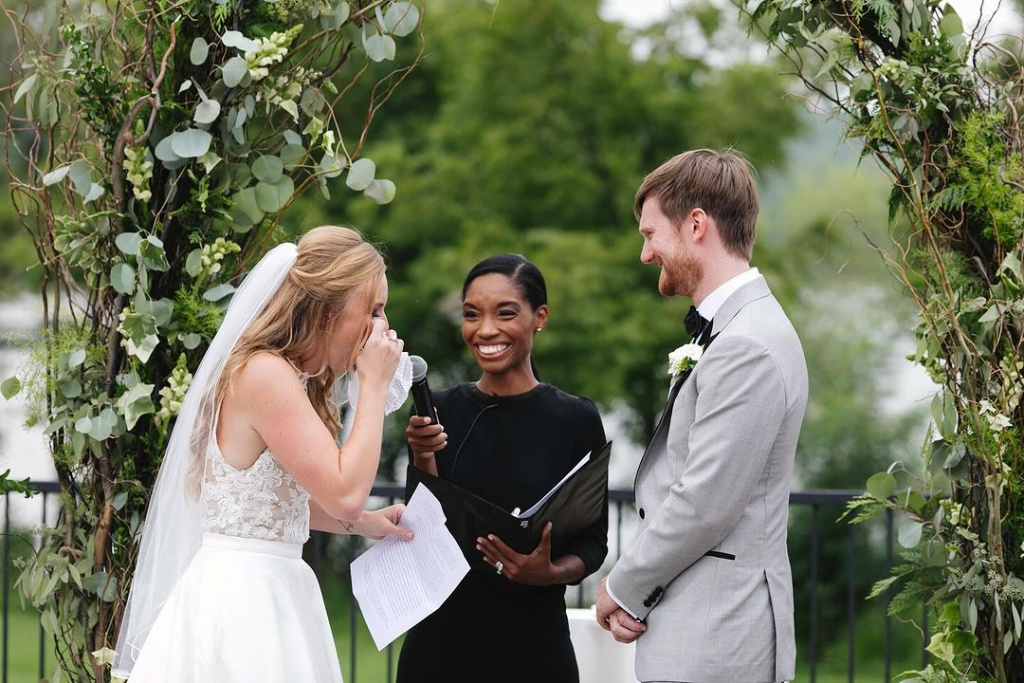
A wedding officiant's role is much more than just overseeing the formalities of a marriage ceremony. They serve as a pivotal bridge, connecting the individual journeys of the couple to their shared future. This role is steeped in spiritual significance. Whether they draw from religious traditions, spiritual beliefs, or a secular perspective, officiants add a profound sense of solemnity to the event. They often call upon a higher essence or a deeper connection, recognizing and honoring the depth of the couple's commitment. This spiritual aspect transforms the ceremony from simply being a legal agreement to a celebration of a deeper, soulful bond.
Leading up to the wedding, officiants often take on the role of a spiritual guide or mentor for the couple. They provide advice, share wisdom, and offer support, assisting the couple in pondering the depth and meaning of their pledge to each other. This guidance may involve discussions about the couple's values, aspirations, and dreams, laying the groundwork for a union that is not only legally recognized but also rich in spiritual and emotional connection.
During the ceremony, it's the officiant's responsibility to encapsulate and convey the spiritual core of the couple's union. Their words and gestures craft a hallowed space, allowing the couple to openly declare their love and dedication amidst their community. This could include a blend of traditional rituals, custom elements, or quiet moments for reflection and prayer, all aimed at honoring and marking the beginning of the couple's spiritual journey together.
Types of Officiants for Weddings
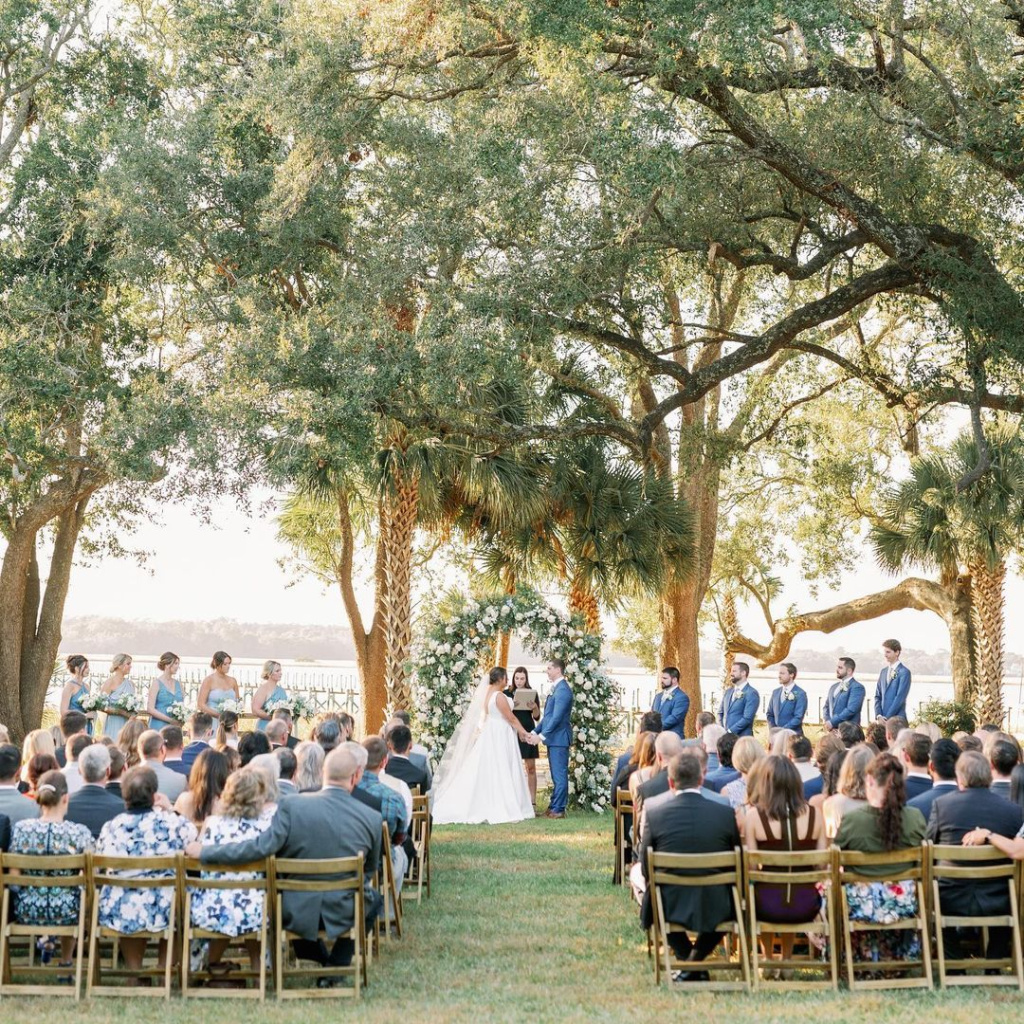
When you're in the midst of wedding planning, getting to grips with the different types of officiants can really steer your ceremony in the direction that fits your vision. Let's go through a detailed lineup to help you pinpoint the perfect match for your big day:
Religious Officiant
Think of traditional figures like priests, ministers, rabbis, or imams. These are the go-to choices for ceremonies held within religious settings. They often require couples to engage in pre-marital counseling or religious classes. Expect their ceremonies to be rich in religious rituals and scriptural readings, aligning with specific faith principles.
Civil Officiant
These are the official types - judges, justices of the peace, and the like. They're all about secular, no-frills ceremonies, often conducted in courthouses or similar official venues. If you're looking for something that's straight to the point and without religious touches, they're your people.
Non-Religious Wedding Officiant
Here's where personalization comes into play. These officiants are all about crafting a ceremony that mirrors your unique relationship. Storytelling, personal vows, and meaningful yet non-religious rituals are their hallmarks.
Friend or Family Officiant
Imagine someone who knows your story inside out leading your ceremony. That's what you get when a friend or family member gets ordained (a surprisingly easy online process) to officiate. It adds an unparalleled level of intimacy and personalization to your ceremony.
Interfaith Officiant
Ideal for couples blending different religious backgrounds, these officiants are pros at weaving together diverse religious traditions into a seamless, respectful ceremony that honors a spectrum of beliefs.
Spiritual but Non-Religious Officiant
For couples who identify as spiritual without sticking to a particular religious doctrine, these officiants focus on the essence of spiritual union. Their ceremonies often incorporate elements like nature, personal spirituality, and unique rituals.
Cultural Officiant
They're experts in ceremonies that resonate with specific cultural traditions. Expect them to have a deep understanding of traditional rituals, customs, and languages, making them a great choice for couples wanting to honor their heritage.
Humanist Officiant
If your focus is on human values like mutual respect, love, and equality, minus the religious or spiritual angle, humanist officiants are your go-to. They craft ceremonies that celebrate the couple's story and commitments in a non-religious and non-spiritual context.
Celebrant
These are the artisans of wedding ceremonies, regardless of religious or cultural leanings. Celebrants excel in creating an experience that's a true reflection of the couple's journey, values, and dreams. Their ceremonies are often a curated mix of elements that align with the couple's unique story and shared beliefs.
How to Find Someone to Marry You
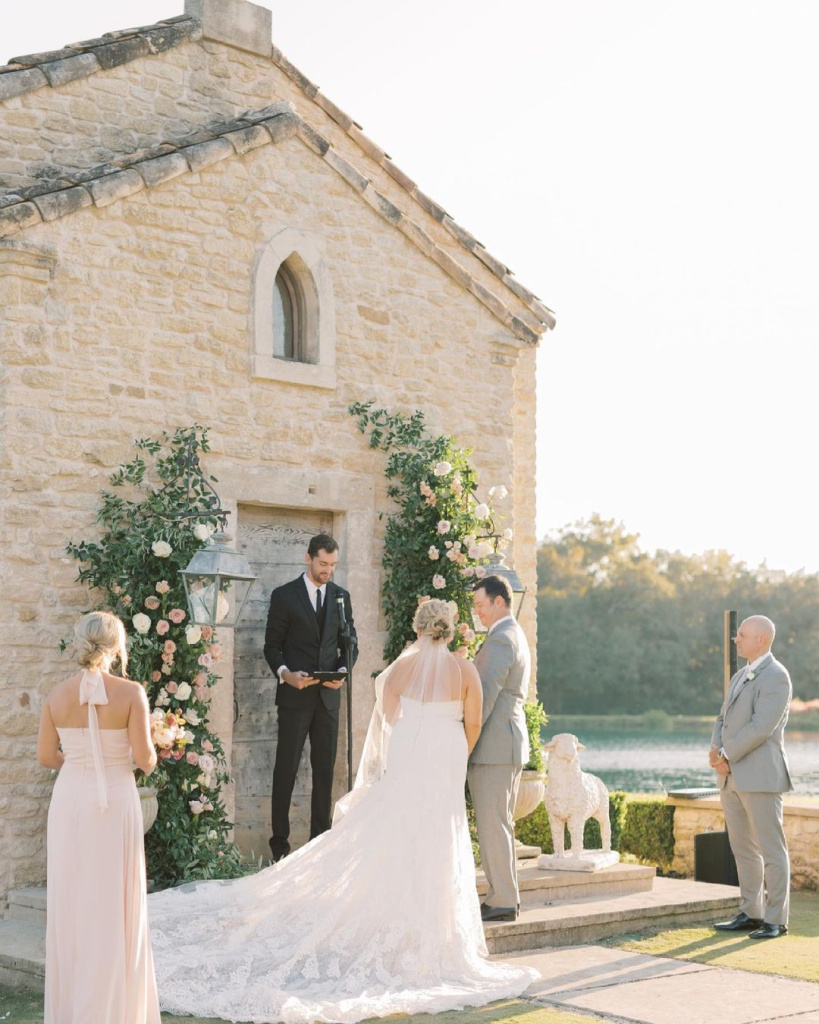
Selecting the ideal person to officiate your wedding is a key element in your wedding journey. This choice should reflect not just your personal style, but also the essence of your love story. Here's a streamlined approach to guide you through this process:
Define Your Vision
Begin your journey by discussing with your partner the style of ceremony you both desire. Are you leaning towards a traditional religious setting, a more secular ambiance, or a blend that's uniquely yours? This vision sets the stage for the type of officiant you'll look for.
Research Thoroughly
Dive into the online world for your search. Wedding websites, social platforms, and various online forums are treasure troves of information. Look out for reviews and feedback, and watch videos if available, to get a feel for the officiants' styles. Remember, word-of-mouth recommendations from your circle or wedding industry professionals can be invaluable.
Conduct Interviews
With a shortlist in hand, set up interviews with your potential officiants. These could be in-person meetings or virtual calls. Use this time to really understand their personality, their approach to ceremony customization, and how they plan to weave your story into the ceremony. Their experience and perspective on making your ceremony resonate with your vision are key points to discuss.
Discuss Expectations and Logistics
Communication is crucial. Be clear about what you expect from your ceremony in terms of tone, length, and specific elements you wish to include. Also, hash out the logistical details like their fees, availability, involvement in rehearsals, and handling of legal formalities.
Trust Your Instincts
After your meetings, take a moment to reflect. Think about which officiant you felt a natural connection with, who understood and respected your vision, and who you believe will make your ceremony everything you've dreamed of.
What Is the Average Cost of a Wedding Officiant
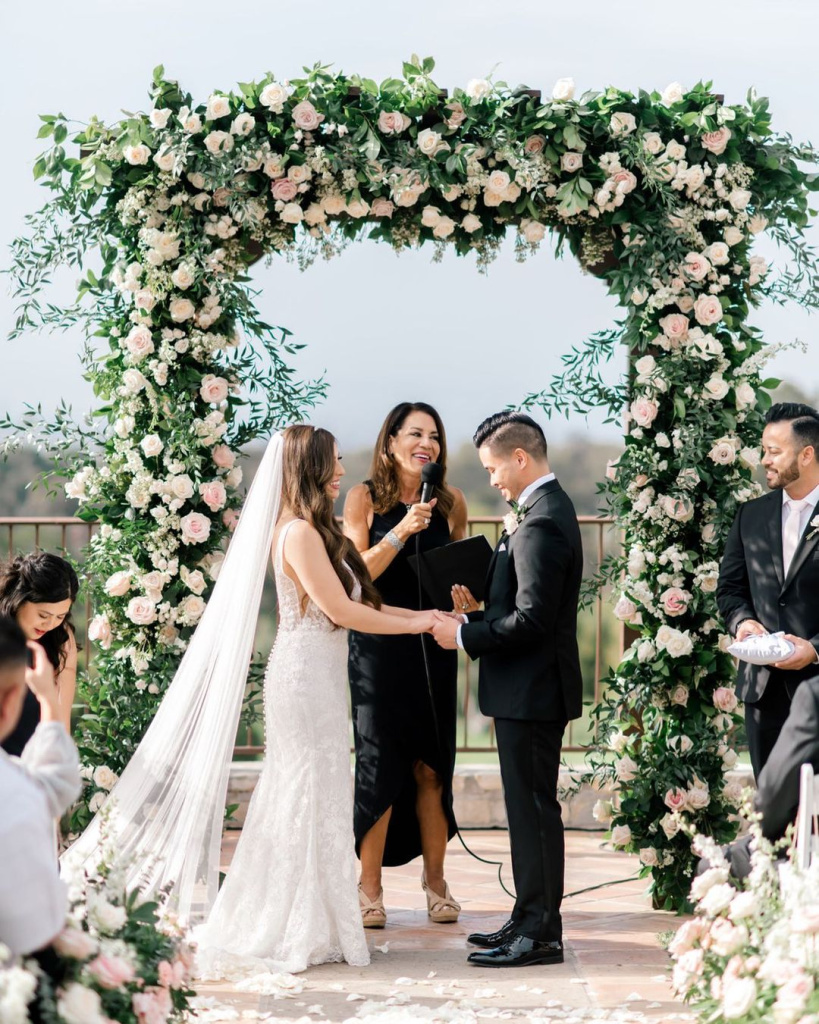
The pricing for wedding officiants in the USA can differ quite a bit, depending on factors such as the officiant's background, their level of expertise, how elaborate your ceremony is, and even where it's taking place. Let's break it down to give you a clearer picture:
- Religious Officiants: Usually, you won't find a fixed price tag with religious officiants like priests, rabbis, or ministers. It's more about making a donation to their place of worship. This could be anywhere from $100 to $500, sometimes more, and it often depends on what the religious institution suggests and your own discretion.
- Civil Officiants: These are your judges or justices of the peace, often officiating civil, and non-religious ceremonies. For something straightforward at a courthouse, the fees might hover around $50 to $100. But if they're coming to you, expect this to bump up to between $200 and $400.
- Professional Secular Officiants: These are the folks who make a career out of officiating and typically charge for their services. Their fees can swing quite widely, mostly depending on how in-demand they are and their experience level. You're looking at somewhere between $300 and $800 on average, but for those really top-tier officiants, it could go beyond $1,000.
- Friend or Family Officiant: If you're going the route of having someone you know officiate â which is becoming quite popular â the cost might be minimal or even non-existent. But it's always a nice gesture to offer them something for their trouble, even if it's just covering their ordination expenses or a small thank-you gift.
And don't forget, there might be extra expenses to consider. Things like the officiant's travel costs, any overnight stays if they're coming from out of town, and additional elements they might bring to the ceremony (like special candles or other ceremonial items) can add to the overall cost.
Wedding Officiant Gift Ideas
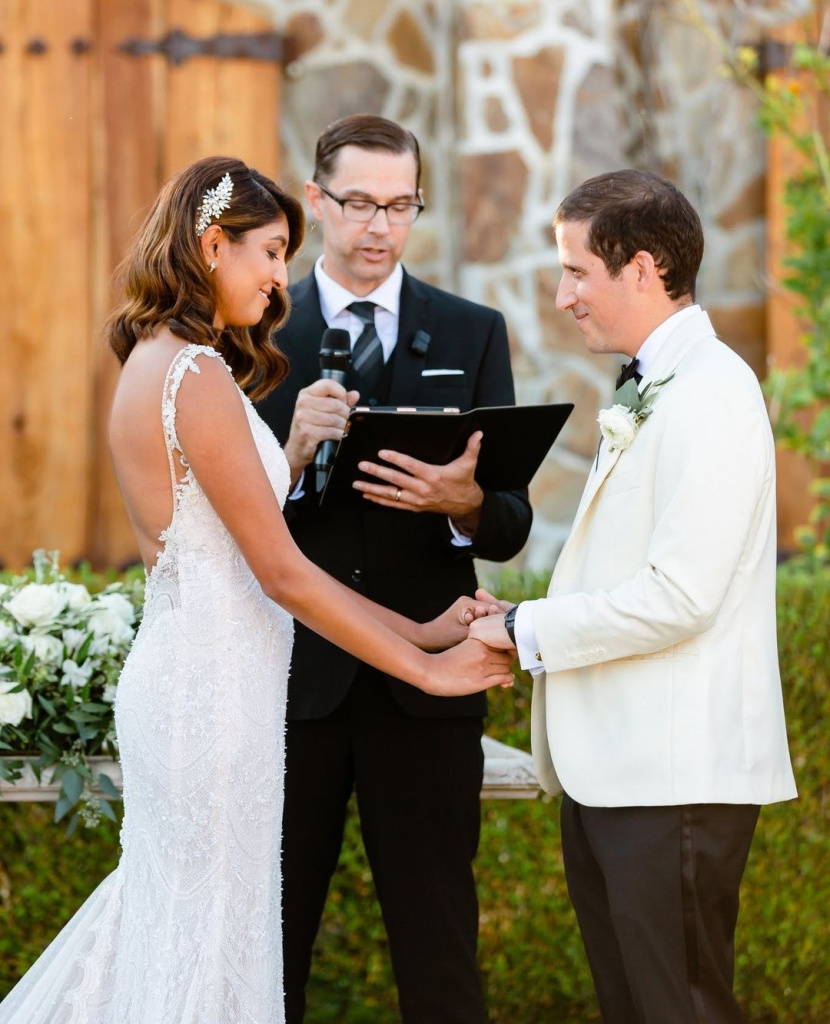
Choosing the perfect gift for your wedding officiant is a heartfelt way to show your appreciation for their integral role in your big day. It's about thanking them not only for their part in the ceremony but also for the advice, support, and unique flair they've added to your wedding. Your officiant could be a professional whose expertise made your ceremony flawless, a religious leader who offered spiritual insight, or a cherished friend or family member who brought a personal dimension to your day. A considerate and well-chosen gift is an excellent expression of your gratitude for their contribution to making your wedding day special and memorable.
- Personalized Keepsake: Consider a custom item like an engraved picture frame, a piece of art commemorating the day, or a personalized plaque. These keepsakes serve as a lasting reminder of the ceremony and your appreciation.
- Gift Certificates: A versatile and appreciated option. Whether it's for a nice restaurant, a bookstore, or a spa, a gift certificate allows your officiant to enjoy an experience of their choice.
- Charity Donation in Their Name: If your officiant is particularly philanthropic or if thereâs a cause they hold dear, making a donation in their name can be a meaningful gesture.
- Custom Artwork: Commissioning a piece of art, such as a painting or a sculpture, especially if it reflects the theme of your wedding or a shared interest, can be a unique and personal gift.
- Quality Wine or Spirits: For an officiant who appreciates fine drinks, a bottle of premium wine, whiskey, or champagne can be a classy gift, perhaps accompanied by a set of elegant glasses.
- Bespoke Stationery: High-quality, custom stationery, possibly embossed with the officiant's name or initials, can be both practical and luxurious.
- A Book of Love Poems or Quotes: This thoughtful gift is especially suitable for an officiant who brought a literary flair to your ceremony.
- Handwritten Thank You Note: Sometimes, a heartfelt, handwritten note expressing your gratitude can be the most cherished gift, especially when combined with a small token of appreciation.
- Relaxation Hamper: A hamper filled with relaxation products like candles, bath salts, and essential oils is a great way for your officiant to unwind after the busy wedding season.
- An Engraved Pen: A high-quality pen engraved with their name or a special message is both a practical and personal gift, perfect for an officiant who loves writing.
- Gourmet Gift Basket: For a foodie officiant, a basket filled with gourmet treats, luxury chocolates, or artisanal cheeses and crackers can be a delightful gift.
- Experience Vouchers: Tickets to a theater show, a concert, or a cultural event can provide an enjoyable experience and a pleasant break.
- Gardening Set: If your officiant has a green thumb, a set of gardening tools or a collection of plants can be a thoughtful and personal gift.
Selecting a gift that aligns with your officiantâs personality and reflects the unique bond you share with them can make your gesture of gratitude even more meaningful. It's a way to personalize your appreciation and acknowledge the special role they played in your wedding. The key is the thought and sentiment behind the gift, which truly makes it valuable and memorable.







